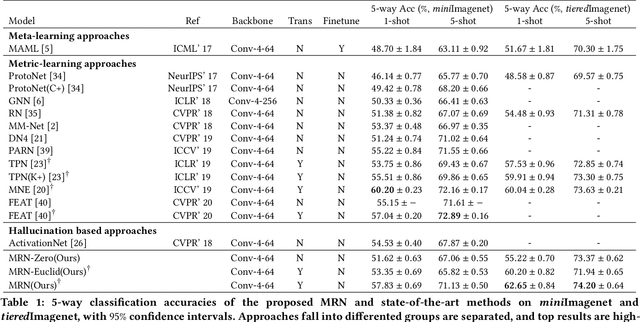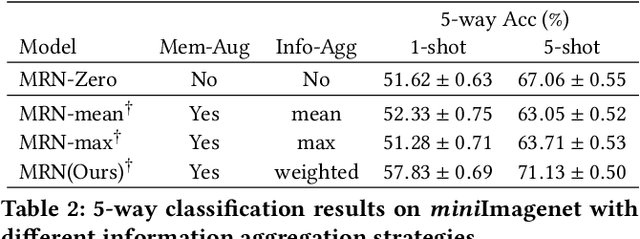Memory-Augmented Relation Network for Few-Shot Learning
Paper and Code
May 13, 2020



Metric-based few-shot learning methods concentrate on learning transferable feature embedding that generalizes well from seen categories to unseen categories under the supervision of limited number of labelled instances. However, most of them treat each individual instance in the working context separately without considering its relationships with the others. In this work, we investigate a new metric-learning method, Memory-Augmented Relation Network (MRN), to explicitly exploit these relationships. In particular, for an instance, we choose the samples that are visually similar from the working context, and perform weighted information propagation to attentively aggregate helpful information from the chosen ones to enhance its representation. In MRN, we also formulate the distance metric as a learnable relation module which learns to compare for similarity measurement, and augment the working context with memory slots, both contributing to its generality. We empirically demonstrate that MRN yields significant improvement over its ancestor and achieves competitive or even better performance when compared with other few-shot learning approaches on the two major benchmark datasets, i.e. miniImagenet and tieredImagenet.
 Add to Chrome
Add to Chrome Add to Firefox
Add to Firefox Add to Edge
Add to Edge